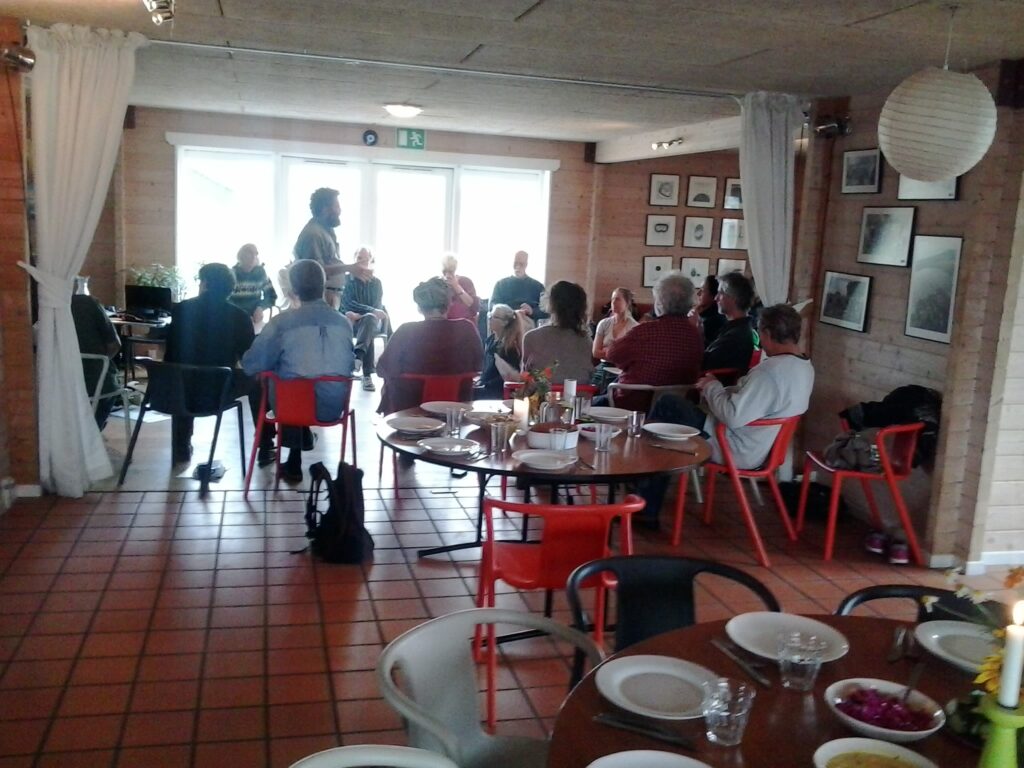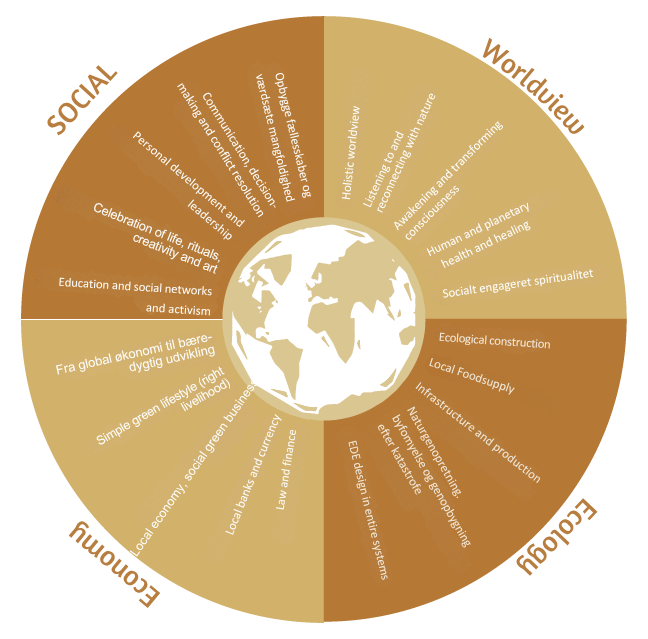ecovillage design education (EDE)
We at LOES are proud to have our own eco-society education – the EDE. It is a result of the educational branch of the eco-society movement, Gaia Education, created by gathering experiences from eco-communities around the world. At LOES we operate with several different models for holding EDE.
In collaboration with Avnø Højskole (økosamfundet Avnø Oasis) offers a 12 week GAIA Verified EDE course. It is called Bofællesskabsuddannelse.
Learn to live in and create happy, healthy and sustainable communities with authentic relationships, permaculture, shared values and green businesses. The course is created in partnership with LØS and certified by Gaia Education.
Participants will travel to several eco-communities – and there are many from the LOES teacher network among the teachers.
Contact: kristiane@okosamfund.dk
Read more and register:
https://avno.org/da/avno-hojskole2/bofaellesskabsuddannelse/
LOES AND GAIA EDUCATION
There are countless exciting opportunities for education at GAIA Education, both online and physcially.
At LOES we are working on getting more GAIA certified teachers and we are well on our way.

LOES EDE in 2024
LØS is planning a GAIA certified EDE course of 4 weeks duration in collaboration with 4 different eco-communities, in 2024. Each week in an eco-community targets one of the 4 dimensions of the sustainability wheel.
At least Hallingelille and Avnø Oasis have committed to taking a week each, but there is still room to be involved in the planning.
Contact: Uddannelsescirklen

THE SUSTAINABILITY WHEEL
LOES uses the sustainability wheel as a starting point for understanding and working with sustainability in all areas of life. The sustainability wheel was created by collecting experiences from eco-communities around the world. From this came the EDE courses, which are offered as GAIA Education certified courses in eco-communities.
An EDE course lasts at least four weeks, composed of approximately one week for each of the four dimensions. The course is primarily based on practical experiences, supplemented by theoretical background. Initiators of new eco-communities can thereby build on the (often expensively purchased) experiences that existing eco-communities have gained.

